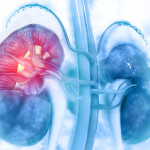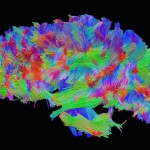
Gratitude is the feeling of appreciation. It is being thankful to someone – or something – for what they have done for you. Gratitude helps us to connect with life around us as we acknowledge the source of the goodness and recognize it lies outside of us in the form of people, things or a higher power. Gratitude can be expressed toward the past to retrieve good memories. Gratitude also honors the present and does not take the good conditions for granted. Towards the future it builds hope, a positive mindset and attitude. Gratitude is the affirmation that there is goodness in the world and that’s powerful!
If the only prayer you said was thank you,
that would be enough.
Meister Eckhart
Have you ever had this experience? On a really arduous project at work, you invest a lot of time and effort and you give it your best. If your business partner or your boss criticizes you, you feel drained, you retract physically and emotionally and feel like quitting. If they show gratitude, however, you are emotionally uplifted, you physically and emotionally open up and want to continue your efforts to accomplish even more. You also appreciate them in return for recognizing your work and praising you. Gratitude is a wonderful relationship-strengthening emotion.
Some people grumble that roses have thorns.
I am grateful that thorns have roses.
Alphose Karr
The Health Benefits of Gratitude
Imagine what gratitude does to your body and your emotional well being. Actually, you don’t have to. Hundreds of scientific studies have done it for you. There’s good news: practicing gratitude is loaded with health benefits.
Gratitude helps you physically:
– Strengthens the immune system
– Lowers blood pressure
– Reduces symptoms of illnesses
– Improves the duration and the quality of sleep
– Helps you exercise more
Gratitude is good for the emotional you:
– Blocks negative emotions like envy, resentment and regret
– Prevents and reduces depression
– Develops positive feelings like joy, optimism and enthusiasm
– Supports altruism, compassion and more positive social behaviors
– Makes you stress resilient. People with a grateful disposition recover faster from adversity and trauma. Symptoms like anxiety and Post Traumatic Stress Disorder (PTSD) are less likely to linger.
– Promotes forgiveness, even between ex-spouses after the divorce!
– Boosts self-esteem. With gratitude, you notice the network of people who are looking out for you in the past and present to help you to be who you are. In the eyes of all these people, you were and are worthy of their love and attention. Human beings are social creatures. If you are recognized as worthy by the group, you are more likely to choose to keep it so. High self-esteem is not only a personal good feeling. It makes you want to take better care to be worthy of yourself and others.
For men, women and children, gratitude increases happiness and life satisfaction. Gratitude is the magical pill!
Gratitude: Your Path to Happiness
Have you noticed how quickly we adapt? What was good and new yesterday is not so after a day or a week. Emotions fade and we want more novelty. We look for more and believe: “Tomorrow when I have more money, better health, etc., then I will be happy.” Tomorrow comes and we might have more money or better health but tomorrow comes with its own yearning for more and the hope that getting this makes us complete. Happiness can only occur in the present. What if we were to treasure who we are and what we have now? What if, rather than focusing on what we lack and allowing the lack to deprive us from today’s happiness, we choose to relish in what we already have or today’s simple pleasures? What if instead of obsessing on what we want to do, we celebrate what we have already accomplished? This is not to say that we should not have dreams and plans, but can we savor the path daily? Gratitude is a way to appreciate and celebrate. What appreciates does not depreciate. Gratitude avoids the trap of adaptation and the end of good feelings.
Feeling gratitude and not expressing it
is like wrapping a present and not giving it.
William Arthur Ward
Practicing Gratitude
Gratitude from the heart is more vital, life giving and effective than gratitude from the head or the lips. The practices below are not merely intellectual exercises to go through. Experience the emotion that comes from the inside and involves your whole being.
Write your gratitude
Regularly write a thank you note to somebody whose presence in your life makes a difference. This nurtures relationship. You can send the note or read it in person. Don’t forget yourself.
Say your gratitude
Say thank you or send thankful thoughts to somebody as often as you have the opportunity, even for very simple things that make your daily life easier, like a nice help in the shop.
Send your gratitude
Send praise to people around. Wish them well for the good they did, the good they are seeking to do or for the tough time they are going through. With your thoughts, eyes, smile, and touch, your presence sends gratitude to all people with whom you interact.
Keep a gratitude journal
A few times a week write about the positive things that have happened to you.
Count your blessings
Make it a ritual to count your blessings every morning to start your day. You might start with your breath, a warm meal, a roof over your head and a clean bed.
Pray
If you have a spiritual practice, praying helps develop gratefulness.
Meditate
Many types of meditation focus on the present moment. Why not keep a part of your meditation to be grateful for the good things in the present moment?
An attitude of gratitude
Rejoice and give thanks for all the goodness to come as if it is already here. It uplifts your spirit and opens your body and your mind to opportunities in your life and helps more goodness to happen to you.
You started the day on the wrong foot?
This video will get you started on the Gratitude Path.
https://www.youtube.com/watch?v=gXDMoiEkyuQ
We can only be said to be alive in those moments
when our hearts are conscious of our treasures.
Thornton Wilder
CranioSacral Therapy, Somato Emotional Release and Visceral Manipulation in New York.



Leave a Reply